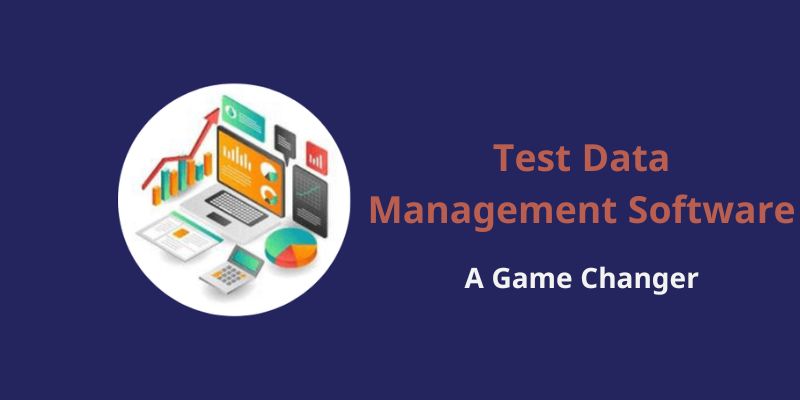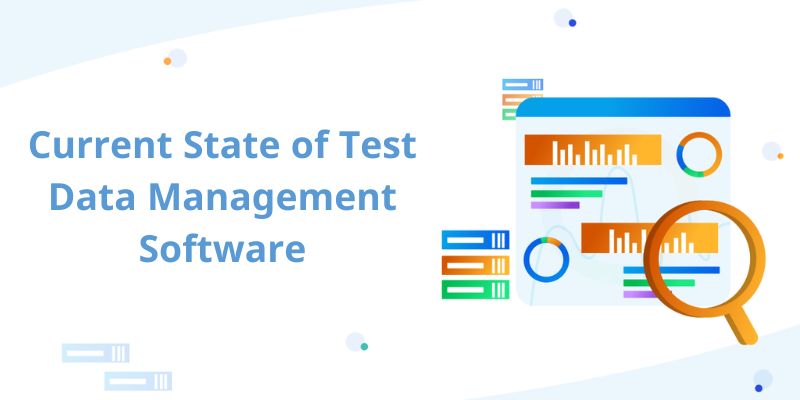In the fast-paced world of software development, testing plays a pivotal role in ensuring the quality, functionality, and security of applications. The effectiveness of testing, however, is heavily dependent on the quality and availability of test data. Without the right test data, even the most rigorous testing processes can fall short, leading to costly errors and delays in software releases. This is where test data management software comes into play, and it’s revolutionizing the way Topweb approach testing.
Test Data Management Software: A Game Changer
Test data management software, often referred to simply as TDM software, is becoming an indispensable tool for software development teams worldwide. It empowers organizations to take control of their test data, streamline their testing processes, and enhance the quality of their software products.

Understanding Test Data Management
Before delving into the future of test data management software, it’s essential to grasp the fundamentals of test data management itself. Test data management involves the creation, maintenance, and manipulation of data used for testing purposes. This data includes a wide range of information, from user profiles to transaction records and beyond.
Traditionally, managing test data has been a cumbersome and error-prone task. Testers would often spend significant amounts of time manually creating and configuring test data sets, leading to inefficiencies and potential inaccuracies in testing.
The Current State of Test Data Management Software
In recent years, the software industry has witnessed the emergence of sophisticated test data management software solutions. These tools are designed to streamline the entire test data management process, from data generation to data masking and everything in between.

Test data management software offers a range of features and functionalities, including:
- Data Generation: Automated tools that can create realistic and diverse data sets for testing scenarios.
- Data Masking: Techniques to obfuscate sensitive information while retaining the data’s structural integrity.
- Data Subsetting: Selectively extracting a subset of production data for testing purposes, minimizing storage and resource requirements.
- Data Provisioning: Quickly provisioning test environments with the necessary data, reducing setup time.
- Data Refreshing: Keeping test data up-to-date to reflect changes in the production environment.
These features significantly enhance the efficiency and accuracy of testing processes, ultimately saving time and resources.
Trends and Innovations in Test Data Management Software
As technology continues to evolve, so does test data management software. Several key trends and innovations are shaping the future of this field:
- Automation and AI-driven Data Generation: TDM software is increasingly harnessing the power of artificial intelligence to create realistic test data, reducing the manual effort required.
- Data Masking and Anonymization: With growing concerns about data privacy and compliance, TDM software is integrating advanced data masking and anonymization techniques to protect sensitive information.
- Integration with DevOps and CI/CD Pipelines: Test data management is aligning with modern software development practices like DevOps and Continuous Integration/Continuous Deployment (CI/CD), ensuring that test data is readily available throughout the development lifecycle.
- Cloud-based Solutions: Cloud-based TDM solutions offer scalability and flexibility, making them an attractive option for organizations with dynamic testing needs.
These trends are not only making testing more efficient but also addressing critical challenges in data privacy and security.
Benefits of Test Data Management Software

The benefits of implementing test data management software are manifold:
- Improved Testing Efficiency and Accuracy: Automated data generation and provisioning reduce the chances of human error, leading to more accurate test results.
- Cost Savings through Data Reuse: By reusing and recycling test data sets, organizations can save both time and storage costs.
- Enhanced Data Privacy and Compliance: Robust data masking and anonymization capabilities ensure that sensitive information remains confidential and compliant with data protection regulations.
- Faster Time-to-Market: Quick access to reliable test data accelerates the software development process, allowing products to reach the market faster.
Challenges and Considerations
While the future of test data management software looks promising, there are still challenges and considerations that organizations must address:
- Data Governance and Compliance: Organizations must establish robust data governance practices to ensure that test data remains compliant with industry regulations and internal policies.
- Scalability and Integration Challenges: As software systems grow in complexity, test data management solutions must scale and integrate seamlessly with existing IT infrastructures.
- Training and Adoption: Teams must be trained in the use of TDM software to maximize its benefits, and organizations should promote a culture of TDM adoption.
The Future Landscape
The future of test data management software is bright and filled with opportunities. Here are some predictions for how this field will continue to evolve:
- Integration with Emerging Technologies: Test data management software will integrate with emerging technologies such as blockchain and Internet of Things (IoT), expanding its scope to new domains.
- Industry-Specific Applications: TDM software will be tailored to suit the specific needs of various industries, from healthcare to finance, further enhancing its relevance.
- Enhanced AI Capabilities: AI-driven data generation and analysis will become even more advanced, enabling TDM software to create highly realistic test data sets.
Case Studies
To illustrate the practical benefits of test data management software, let’s take a look at a couple of real-world examples:
Case Study 1:
A global e-commerce giant implemented TDM software to streamline its testing processes. By automating data generation and provisioning, the company reduced the time required for testing by 30%. This resulted in faster product releases and a significant increase in customer satisfaction.
Case Study 2:
A financial institution adopted TDM software with robust data masking capabilities to protect customer data during testing. This not only ensured compliance with financial regulations but also boosted customer trust, leading to increased business.
Recommendations for Adopting Test Data Management Software
If your organization is considering implementing test data management software, here are some recommendations:
- Assess Your Testing Needs: Understand your testing requirements and identify areas where TDM software can bring the most value.
- Choose the Right Software: Select a TDM software solution that aligns with your organization’s size, industry, and specific testing needs.
- Invest in Training: Train your teams to effectively use TDM software and encourage its adoption across the organization.
Conclusion
In conclusion, test data management software is the future of efficient and effective software testing. With its automation capabilities, data privacy features, and integration with emerging technologies, it is poised to transform the way organizations approach testing. By adopting TDM software and embracing its potential, organizations can not only streamline their testing processes but also deliver higher-quality software products to market more quickly.